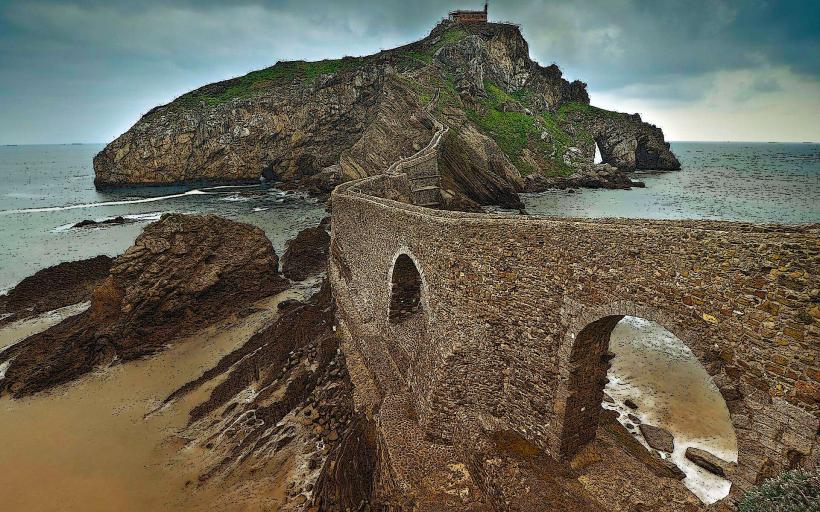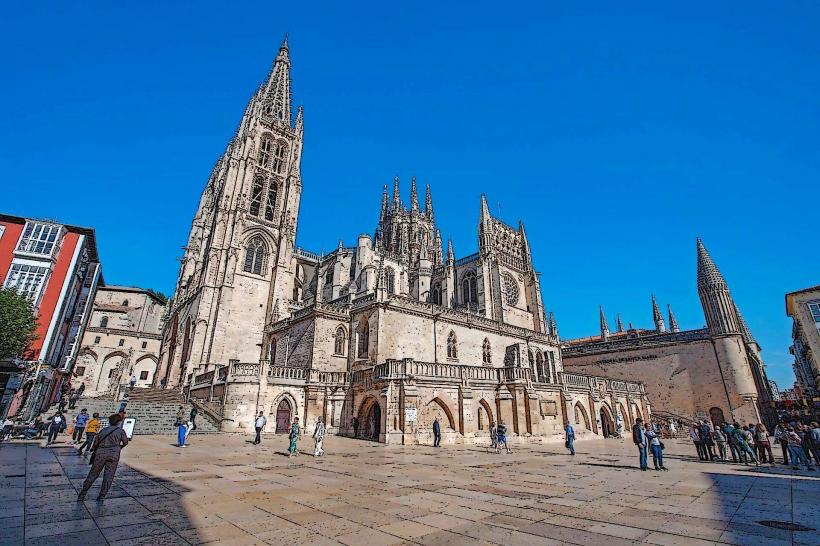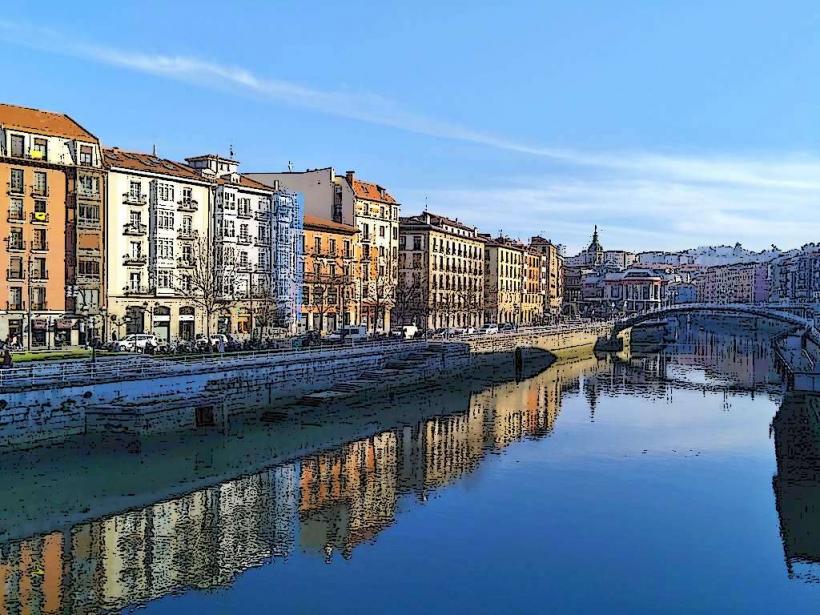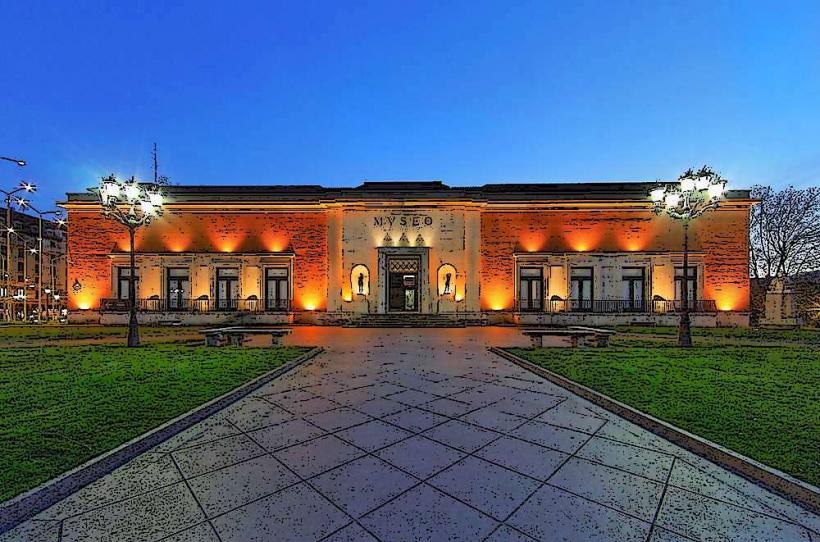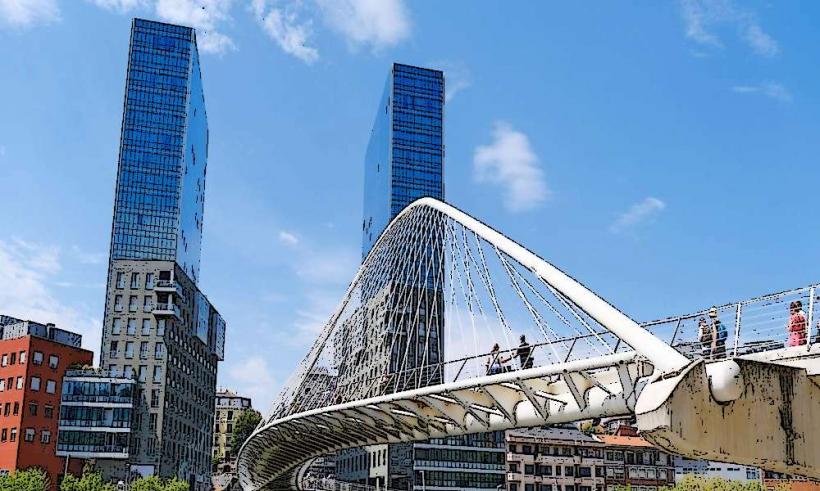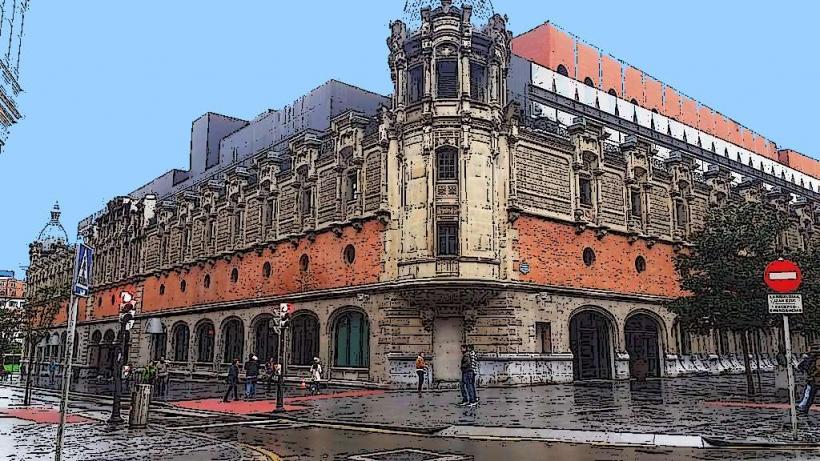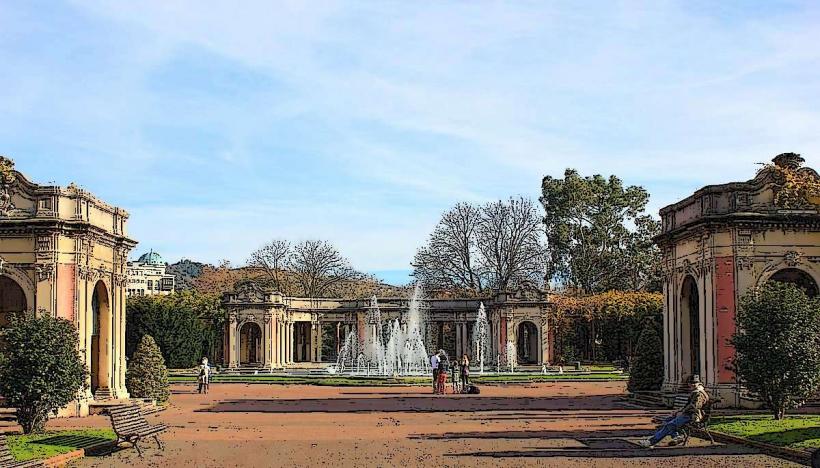Information
Landmark: Guggenheim MuseumCity: Bilbao
Country: Spain
Continent: Europe
The Guggenheim Museum Bilbao, located along the Nervión River in Bilbao, is one of the world’s most renowned modern art museums and a masterpiece of contemporary architecture. Opened in 1997, the museum is celebrated not only for its vast collection of modern art but also for its revolutionary building design by American architect Frank Gehry. The museum's arrival marked a turning point for Bilbao, spearheading the city’s transformation from an industrial port to a global cultural destination—a phenomenon known as the “Bilbao Effect.”
Architecture and Design
Frank Gehry's Vision: The Guggenheim’s architecture is instantly recognizable for its organic, curvilinear design clad in shimmering titanium panels that appear to change color based on the time of day and the weather. Gehry drew inspiration from the shapes of fish scales, the flowing river, and the nearby shipyards, creating a structure that seems alive, blending seamlessly with Bilbao’s industrial history and natural surroundings.
Titanium Exterior: The museum’s exterior is covered in over 33,000 thin titanium sheets, which add a silvery sheen and allow the building to reflect natural light in unique ways. This material was chosen for its durability and flexibility, contributing to the building’s sculptural form.
Interior Design: Inside, the museum is equally innovative, with vast, open gallery spaces connected by curved corridors and walkways. The atrium serves as the central heart of the museum, with a three-story glass-walled space that floods the interior with natural light, creating a sense of openness and grandeur.
The Art Collection
The Guggenheim Museum Bilbao houses a blend of permanent and temporary exhibitions featuring 20th- and 21st-century art. The collection includes works from some of the most influential artists of modern and contemporary art.
Permanent Installations:
- "The Matter of Time" by Richard Serra: One of the museum's most celebrated works, this installation consists of a series of massive, spiraling steel sculptures that visitors can walk through, creating an immersive experience that challenges perception and space.
- Puppy by Jeff Koons: Located outside the museum, this massive sculpture of a West Highland terrier is covered in vibrant flowers and has become an iconic symbol of the Guggenheim. Koons designed this 40-foot tall structure to evoke joy and optimism.
- Maman by Louise Bourgeois: A giant spider sculpture situated near the entrance, symbolizing protection and maternal strength.
Temporary Exhibitions: The museum regularly hosts temporary exhibitions showcasing both Spanish and international artists. The museum collaborates with other Guggenheim institutions around the world, allowing for a diverse array of exhibitions that highlight various artistic movements, media, and styles.
Impact on Bilbao and the “Bilbao Effect”
The Guggenheim Museum Bilbao is often credited with revitalizing Bilbao’s economy and international image, a phenomenon now known as the “Bilbao Effect.”
Economic and Cultural Impact: Before the museum, Bilbao was primarily known for its declining industrial sector. The Guggenheim sparked a cultural and economic revival, attracting millions of tourists annually, which boosted local businesses, hotels, and infrastructure. This success has inspired cities worldwide to invest in cultural landmarks as a strategy for urban renewal.
Urban Transformation: Following the Guggenheim’s success, Bilbao invested in various infrastructure and urban improvement projects, such as the Zubizuri Bridge by Santiago Calatrava and the Bilbao metro system designed by Norman Foster. These projects have transformed the city into a model of urban regeneration.
Visitor Experience
Guided Tours and Audio Guides: The Guggenheim offers various guided tours in multiple languages and audio guides to enhance the visitor experience, providing insights into both the art on display and the architectural design.
Surrounding Area: The museum is located in a picturesque area along the Nervión River, with pedestrian pathways and gardens that make for a pleasant stroll. The waterfront area around the museum has become a lively space, filled with public art and nearby cafes, making it a popular spot for both locals and tourists.
Tickets and Admission: The museum is open throughout the year, with varying admission prices. Discounted or free admission is available for students, seniors, and children, and tickets can often be purchased online in advance to avoid long queues.
Practical Information
- Location: Avenida Abandoibarra, 2, in Bilbao’s city center, within walking distance from Casco Viejo and other major attractions.
- Hours: Open every day except for Mondays (with some exceptions). Visitors are encouraged to check the museum’s official website for the latest opening hours and details on current exhibitions.
- Accessibility: The Guggenheim is fully accessible for visitors with disabilities, including ramps, elevators, and accessible restrooms.
Conclusion
The Guggenheim Museum Bilbao is more than just a museum; it is a work of art in itself. As both an architectural marvel and a cultural hub, it offers a unique experience that celebrates art, innovation, and Bilbao’s remarkable transformation. Whether you’re an art lover, an architecture enthusiast, or simply a traveler seeking a memorable experience, the Guggenheim Bilbao is a must-see destination that leaves a lasting impression.


